|
|
|
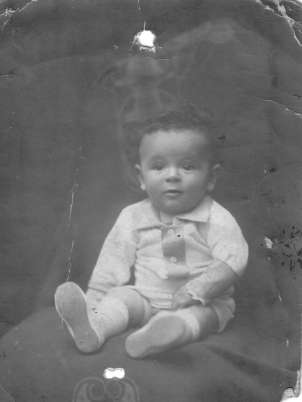 Henry Ohlbaum (c. 1915) He was just a toddler when his mother showed him this photograph which his father, Mendel, carried on the battlefield at Novice, Galicia when he was felled by German artillery in WWI. The holes were said to have been created by shrapnel. |
My wife, Wendy, and I consider ourselves leaves of a "secret" branch of the family tree. Family patriarch Isaac (Itchel) Oelbaum kept it secret for 52 years, and to many of his descendents, myself included, it remained a "secret." What Itchel did not want anyone to know was that before coming to the U.S. from Rzeszow, Galicia, then a part of the Austro-Hungarian Empire, and before marrying his beloved Dora, he had been married and had fathered a child with his first wife, Selde Gleicher, my great-grandmother. As I learned in 1990 from Cousin Will Ohlbaum, of blessed memory, the younger son of Harry and Blanche of Philadelphia, Itchel was said to have obtained a Jewish divorce, or get, shortly after his son Emil (Mendel) was born in 1886. |
| Mendel became an upholsterer in Vienna, Austria, where he married my grandmother of blessed memory, Mathilde Kaufmann, in 1911. Several months after their first and only child was born in 1913, Mendel was drafted into the Austro-Hungarian Army to fight in World War I. His son, Hans, who later changed his name to Henry, my father of blessed memory, was just a toddler when his mother received a terse telegram informing the family that Mendel had been killed on the battlefield in Novice, Galicia in 1915. Dad told me the story of his father's untimely death many times. And he showed me the photograph of himself as an infant. It had been returned to his widowed mother when she received Mendel's personal belongings. It was punctured by shrapnel, he said.
By 1938, the persecution of Jews in Nazi-controlled Vienna had become so intense that Henry knew his choice was either emigration or death.
My parents obtained passage on the S.S. Roosevelt and landed at Ellis Island. They hoped that Itchel or one of his adult children would sponsor them. An affidavit of sponsorship was a condition of permanent entry to the U.S. But when Itchel and Henry met face-to-face for the first time, Itchel fought stubbornly to keep this branch of his family a secret, Cousin Will told me. He disavowed any familial ties, declared his 25-year-old grandson ineligible for membership in the Oelbaum Family Society and forbade his wife and children to have anything to do with Henry. Most of his children abided by their father's wishes. However, at least two, Ruth and Rose, of blessed memory, believed he was wrong to shut the door on his own flesh and blood. Ruth and her husband, Charles Goldner, accepted responsibility for admitting Henry and Kathe to the U.S. Even Henry perpetuated Itchel's secret. Dad never even brought up that he and Itchel were related. In fact, I first learned that Itchel was my great-grandfather after I started studying my roots, looked up and interviewed Cousin Will and uncovered Itchel's "secret." After I confronted my elderly father with the story I had uncovered, he complacently acknowledged it. Ed Ohlbaum monty138@yahoo.com January 1, 2004
|
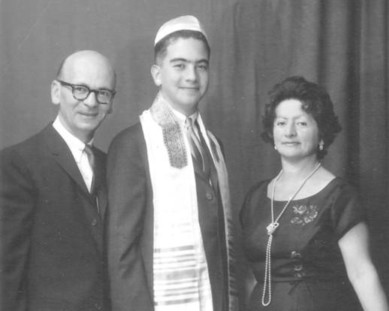 |
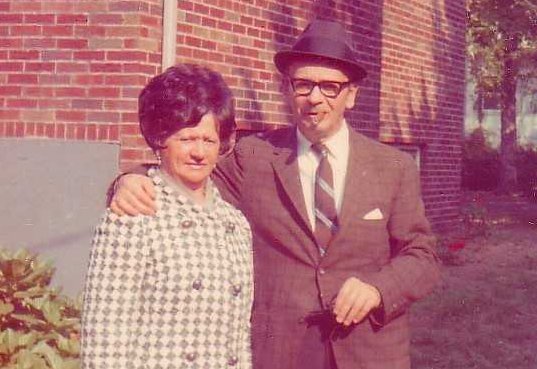 |
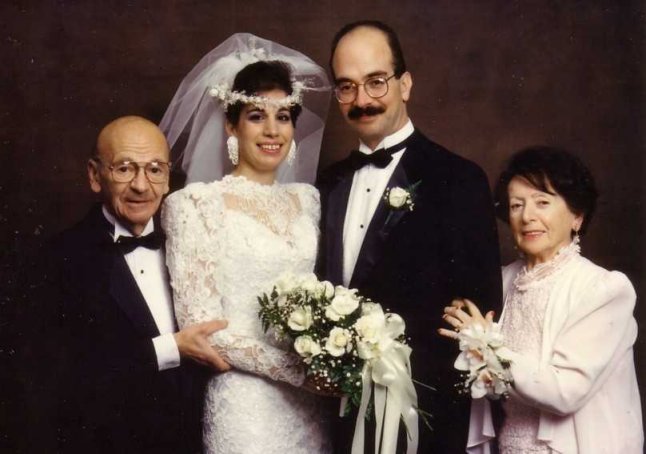 |
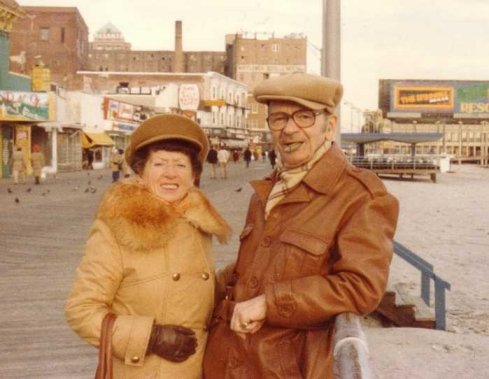 |